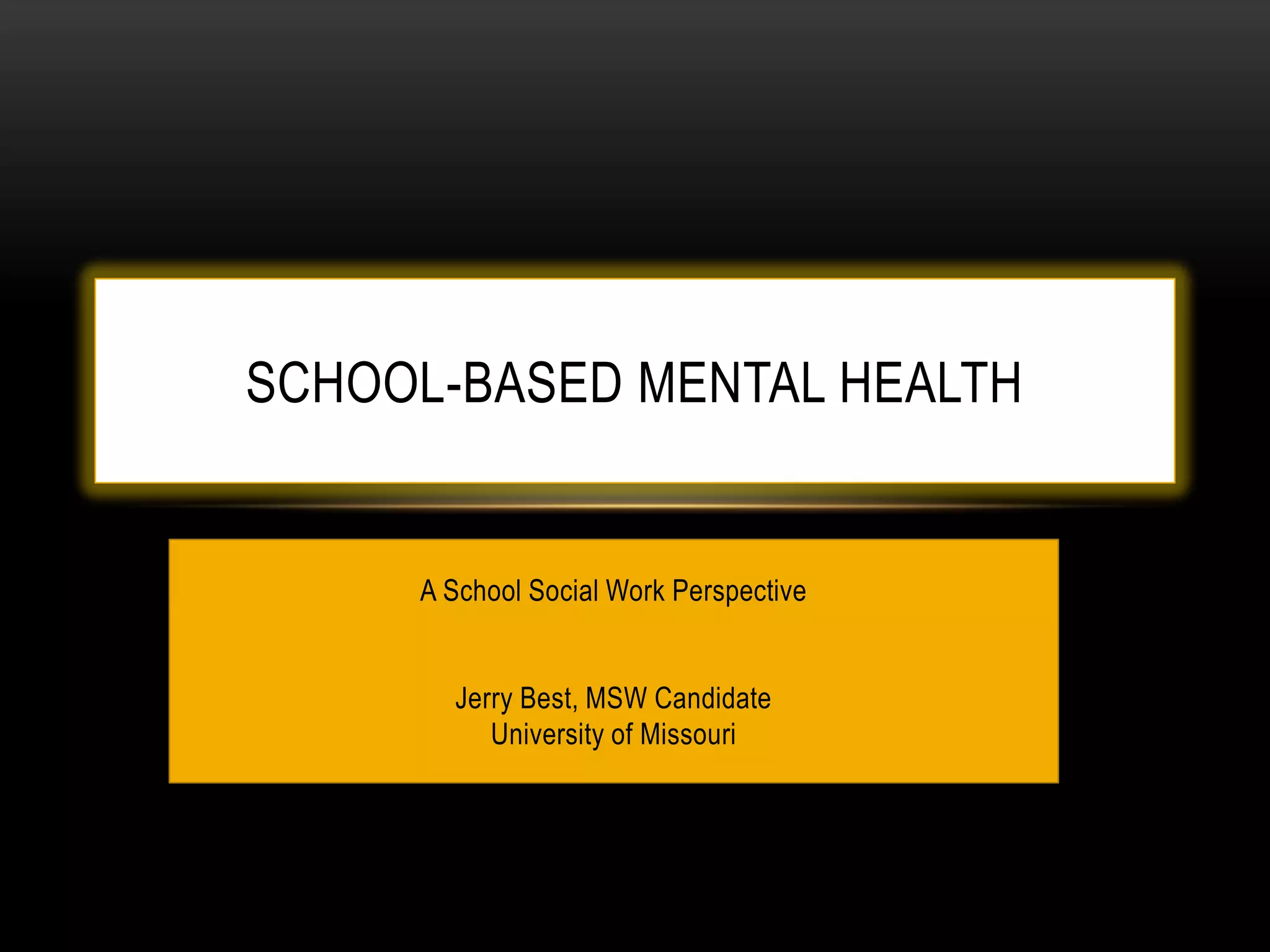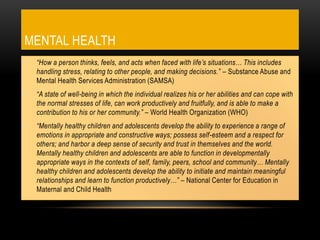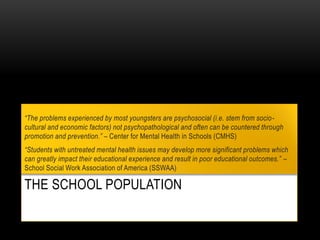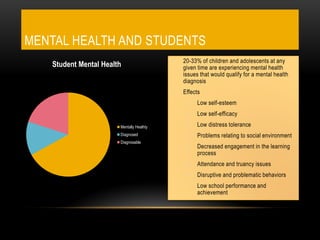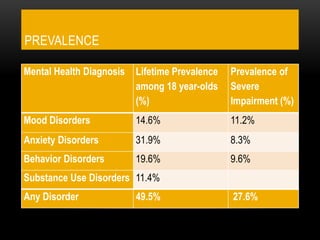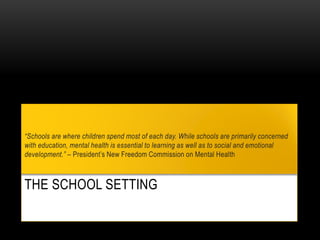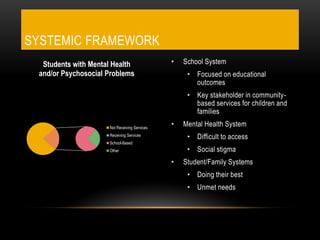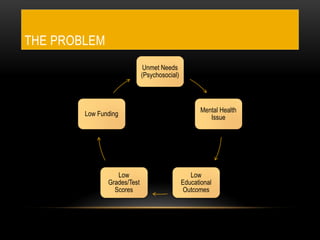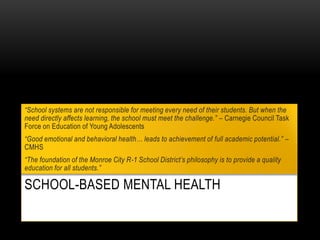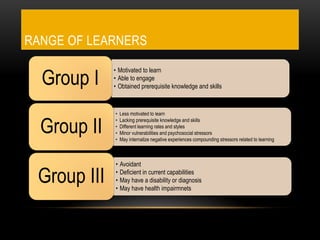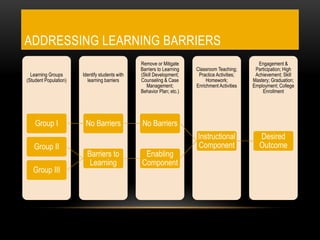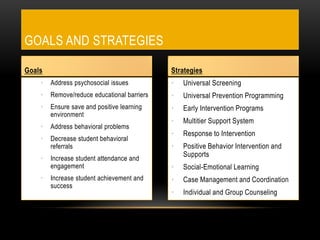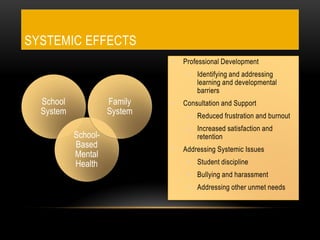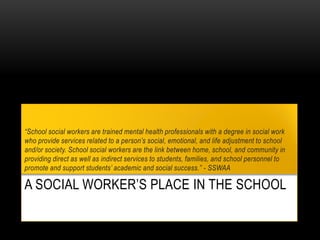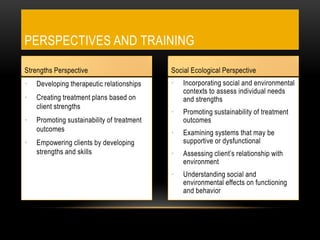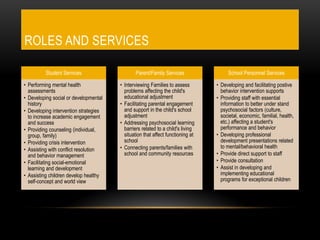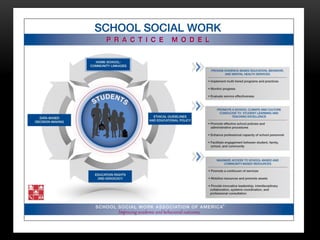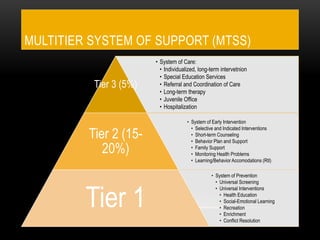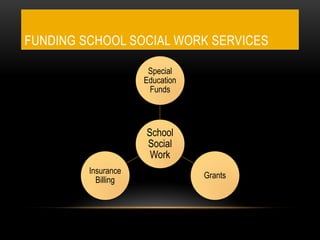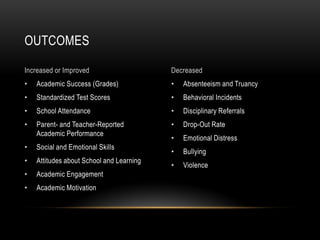This document discusses school-based mental health and the role of school social workers. It notes that 20-33% of students experience mental health issues that impact their education. School social workers take an ecological perspective, addressing individual, family, school and community factors. Their roles include assessments, counseling, case management, consultation and developing multi-tiered systems of support. The goals are to identify and reduce barriers to learning, support student mental health and success, and provide professional development to reduce staff burnout. Outcomes include improved academic performance, behavior, engagement and emotional well-being as well as decreased disciplinary issues, absenteeism and dropout rates.
